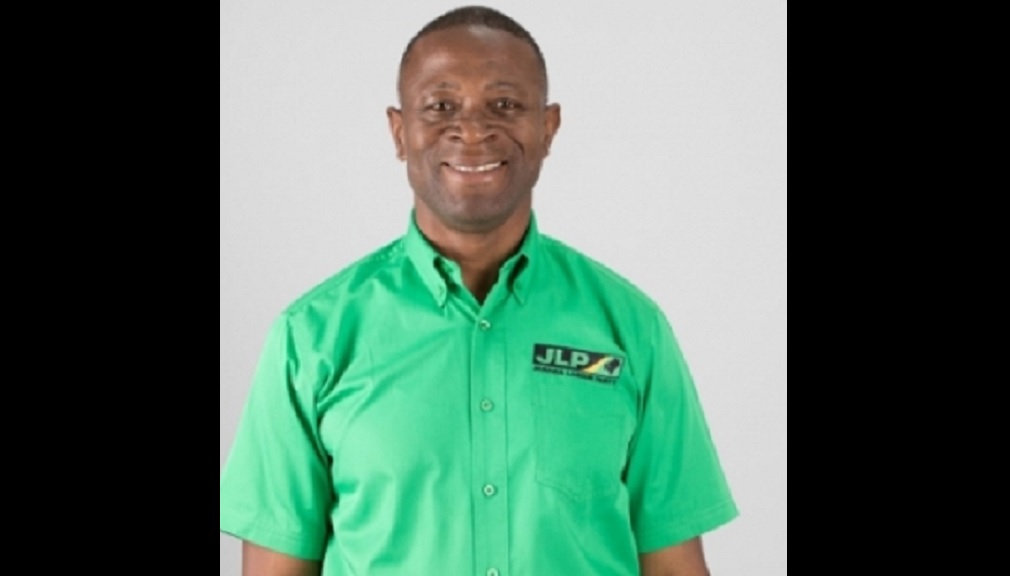(Jamaica Observer) Member of Parliament for Westmoreland Central George Wright, who has been embroiled in controversy regarding a video showing a man beating a woman, has been granted leave of absence from the House of Representatives pending a conclusion to the matter.
Wright, who has been a Government backbencher since being elected to the House in the September 3, 2020 General Election, is also banned from the Jamaica Labour Party’s Government Caucus and, as such, will not be under the control of the Government’s whip.
House Speaker Marisa Dalrymple Philibert made the announcement at the start of yesterday’s sitting of the Parliament, which followed interaction between both sides of the chamber resulting in a joint statement from the women in the House, which she read:
“As women in Parliament, we are dedicated to leadership in our country and committed to the promotion of a safer, gentler and more peaceful Jamaica in which every person can live free from fear and in which mutual respect and love are practised among our people.
“We, in this joint statement, continue to denounce domestic violence in all its forms and regardless of who the perpetrators are or may be. We express solidarity with our sisters who find themselves in these violent circumstances. We beg that you be not ashamed but seek support from any source you trust.”
Wright has not admitted publicly to being the man in the video. However, the police last week said they had ended an investigation into the mater due to a lack of cooperation from Wright and businesswoman Tannisha Singh, who had both made independent reports of a physical altercation on April 6.
The police had also stated that the quality of video of the incident, which has gone viral, is too low to be of much help in an investigation.
Yesterday, Prime Minister Andrew Holness said that, “like all well-thinking Jamaicans” when he first saw the video, and after learning that the man was an MP, he was outraged at the display of violence shown by the man, whose behaviour displayed a new “disturbing dimension to the issue”.
Government minister responsible for gender affairs Olivia Grange, in a presentation during yesterday’s sitting of the House, called for an end to the killing and beating of both women and men.
She noted that the Government had introduced several initiatives to tackle the problem, including the establishment of national centres for victims of gender-based violence.
She said that one shelter is already “up and running”, while two others are currently being renovated to accommodate more victims. Grange also said that a “no excuse for abuse” campaign was already launched and awaiting the rolling out of a new phase soon.
She said, however, that while she believes every perpetrator of domestic violence should be punished, she also believed that “every effort should be made to rehabilitate the perpetrators”.
Grange also announced that Cabinet has given approval for the necessary amendments to be made to the Domestic Violence Act, which will serve to strengthen the laws. Among the amendments the Government will pursue, she said, is for a definition of domestic violence in the Act, to make clear that it is not only physical, but also psychological, emotional, and sexual.
Opposition spokeswoman on education Angela Brown Burke said there was a need to look at the current laws to see how efficient they have been and where the implementation gaps exist.
But, among the men in the House there appeared to be a lack of agreement on how to proceed on these matters involving parliamentarians.
Holness criticised social norms, including the feeling that a successful relationship involves beatings. This, he said, needs to be removed from the minds of Jamaicans. However, he admitted that it is the Parliament which must set the example.
Opposition Leader Mark Golding assured the prime minister that the Government would have the Opposition’s support in whatever efforts are made to make Jamaica a more peaceful and loving society.
But Golding said that, while he agreed with Holness that action is needed, he was unhappy with the lack of action on the part of the Government, in certain respects. For example, he said that a joint select committee had tabled a report over a year now on amending the sexual offences law, but none of the recommendations have been implemented.
“This is the kind of inaction that we need to change. We need to be more prompt and proactive in responding to real issues when they are identified,” Golding insisted.
The Speaker sought a resolution as to whether both sides of the House were willing to accept rules governing the behaviour of MPs. She said she was ready to seek to balance and facilitate the scales, and was ready to move along, if that was where the Parliament was headed, “because the country calls for us to be united”.
She said that if there are matters for which there are criminal charges linked to behaviour which is not tolerated in the Parliament, should it move to suspend that member?
“It is a serious matter, and I am merely trying to understand where we are going as a Parliament, and how as a united front we are going to deal with the issues that are before us,” she explained.
However, Golding said that there was only one issue currently before the Parliament at this time, and that was so because it was a national issue which the Opposition wanted to have dealt with.





